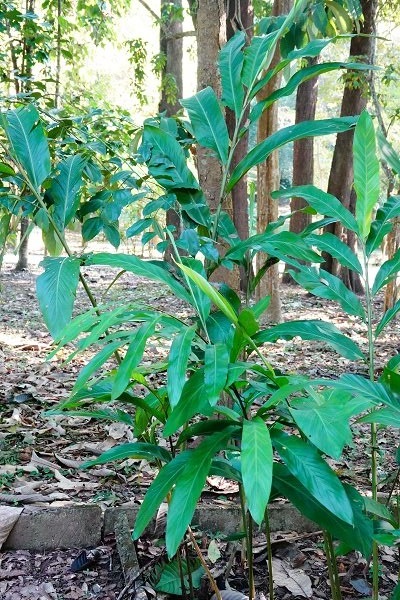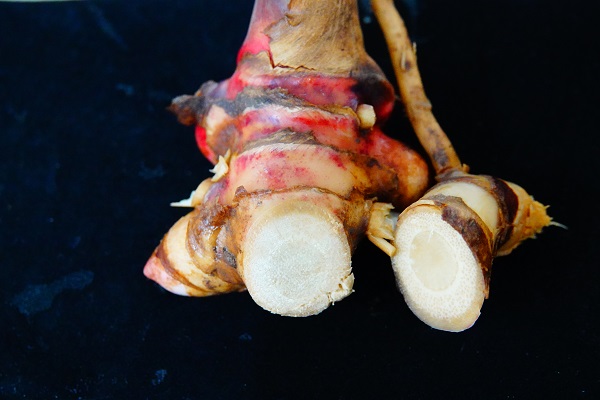Ulcerative colitis (UC) is a nonspecific, chronic, and recurrent inflammatory bowel disease (IBD). Alpinia plants (Zingiberaceae family) are treated as the ideal materials for finding therapeutics agents against UC. Alpinia hainanensis is an important food spice and ethnic medicine in Southwest China. However, there have been few reports about chemical and anti-inflammatory investigations of A. hainanensis rhizomes.
In a study published in Journal of Agricultural and Food Chemistry, researchers from Xishuangbanna Tropical Botanical Garden (XTBG) and Shanghai Institute of Materia Medica found that the EtOAc-soluble fraction (AHE) of the A. hainanensis rhizome ethanol extract could ameliorate dextran sulfate sodium-induced ulcerative colitis (UC).
By nuclear magnetic resonance (NMR), chiral high-performance liquid chromatography (HPLC) separation, and electronic circular dichroism (ECD) calculation, the researchers isolated and structurally characterized 19 compounds (1-14), including five pairs of previously unreported enantiomers (1-5).
The results showed that compounds (-)-1, (-)-3, 6, 9, 11, and 12 exhibited inhibitory effects on the NF-κB (a widely expressed nuclear transcription factor) signaling pathway, and the two most active compounds (-)-3 and 6 exhibited significant inhibition of inflammation expression in LPS-induced RAW264.7 cells.
The study reports not only the anti-colitis effects of the active fraction from the A. hainanensis rhizome ethanol extract but also active ingredient isolation, structural elucidation, putative biosynthetic pathway analysis, and evaluation of anti-inflammatory effects.
“We suggest that the major active fraction AHE of the A. hainanensis rhizome ethanol extract could be developed as a nutritional and dietary supplement for treating UC,” said JI Kailong of XTBG.
Contact
SONG Qishi Ph.D Principal Investigator
Key Laboratory of Tropical Plant Resources and Sustainable Use, Xishuangbanna Tropical Botanical Garden, Chinese Academy of Sciences, Menglun 666303, Yunnan, China
E-mail: songqs@xtbg.ac.cn

Alpinia hainanensis (Image by JI Kailong)

Alpinia hainanensis (Image by JI Kailong)


